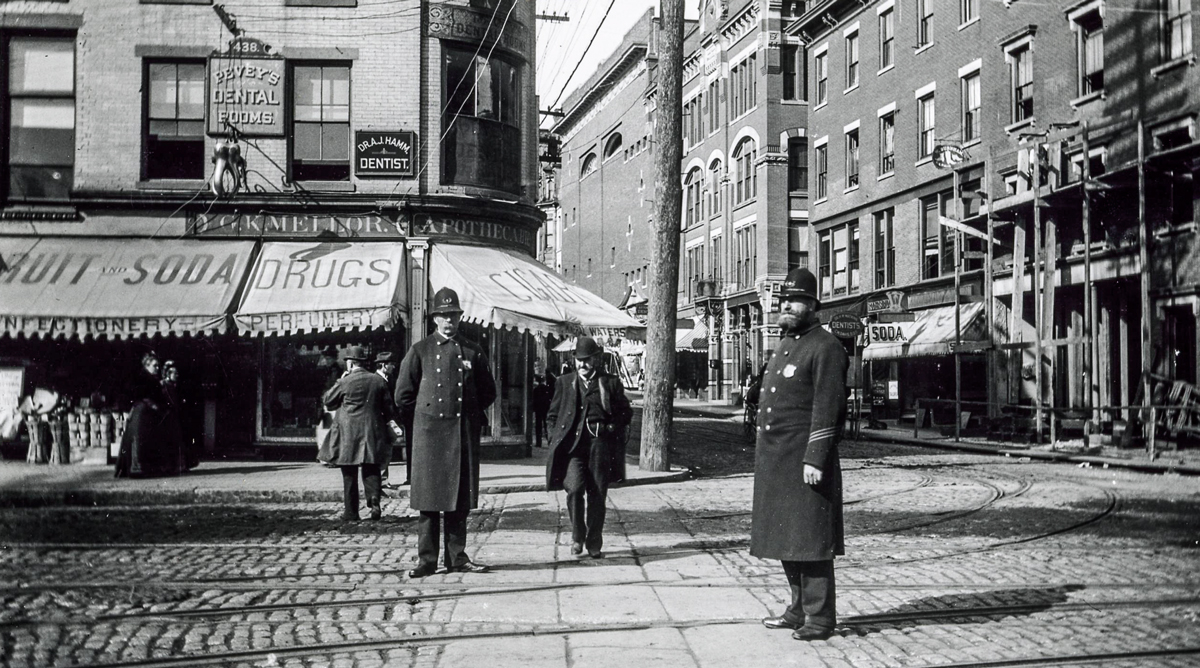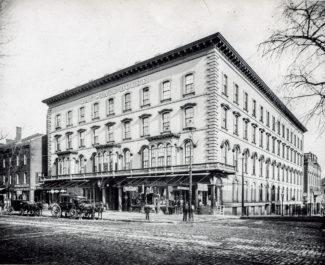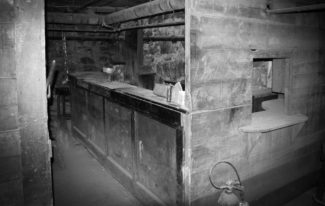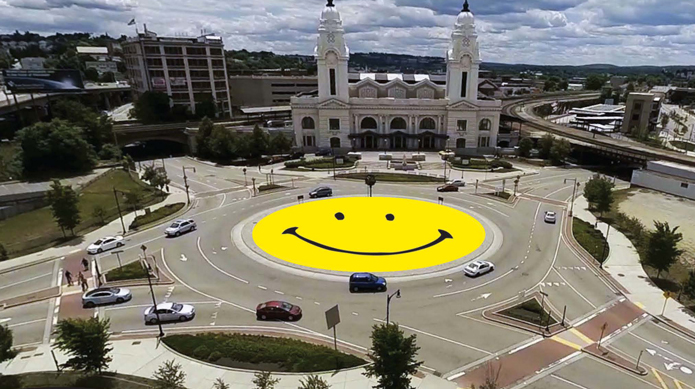
“Twenty-eight federal prohibition agents led by John Hall, prohibition enforcement director for Worcester county, and part of the Worcester liquor squad under Sergt, Joseph P. Murphy, working independent of each other, yesterday staged the greatest series of raids Worcester has seen in months. More than a dozen alleged ‘speakeasies’ were busted by the federal agents, while up to a late hour last night, six places had been raided by local police. Liquor and utensils of all varieties, seized by both squads, was estimated to be worth more than $3000,” published the Worcester Daily Telegram on January 8, 1928.
The war on alcohol had reached Worcester and inevitably sparked a debate among the residents, politicians and visitors, alike, creating a strict line between “sides” during the prohibition era. So, with a history of secrecy, debauchery, and lawlessness, how did this era of necessity shape the industry opening the doors to modern day pop-culture speakeasies like, 67 Orange Street in NYC, Backbar and Bogie’s Place in Boston, and Bootlegger’s in Worcester.
According to Roy Rosenzweig, author of Eight Hours for What We Will, saloonkeeping was the most accessible means of upward social mobility for immigrants in Worcester prior to the prohibition laws. More than three-quarters of Worcester’s Irish immigrants who had become small proprietors by 1900 were engaged in some aspect of the liquor trade. As the desire for saloonkeeping grew favorable among immigrants, the era of drunkenness emerged and catapulted Worcester into an era of crime, abuse and gender isolation. In flow with the series of events happening across the states, drunkenness began to surge outrage and destroy families. Often the result of liquor consumption, women and children were abused and mistreated within families. And while women, not to be implied as non-consumers of liquor, were “forbidden by police regulation to patronize the bar-rooms,” leaving them at home with the children and without a husband.

At a time in where labor workers dominated the working industry in Worcester, drunkenness impacted the everyday man. Employers began to see the destroying elements of liquor consumption and its heavily weighted influence on worker production. As production declined, employers began taking a stand against drunkenness and between the family abuse and lack of stable labor workers, Worcester voted to become a “dry” city on January, 15, 1920.
But Worcester was ready for the prohibition era.
While public drunkenness was an offense that accounted for approximately 60 percent of all arrests in Worcester over a span of 8 years, the ideals of saloonkeeping were never deemed undesirable. Instead, the saloon patrons operated outside of, if not against, the formal legal system.
“You see, Vernon Hotel was the most popular speakeasy in Worcester and remains to be the only speakeasy in Worcester today,” says Bob Largess, owner of Hotel Vernon. Owned by two brothers, Frank “Bossy” McGady and Beaven McGady, in the 1920s, the Hotel Vernon is a booming piece of Worcester’s prohibition history. Maintained on the forefront as an Inn, Hotel Vernon served as a speakeasy to those who knew how to get in. Serving ales and liquor during the dry era, Hotel Vernon was simply the place to be. The area, once known as Green Island, was titled “Worcester’s second downtown.”
“During the prohibition era, if you were in the know, then you knew about the Hotel Vernon’s speakeasy. You knew that the sight of Babe Ruth drinking was part of the Hotel Vernon way. It was, at no point, out of the ordinary,” says Largess. Hotel Vernon was built in 1901 and served as the heart of Vernon Square. “This was an area that prided itself on the sense of community. Everyone knew everyone and everyone looked out for everyone. The speakeasy was a home away from home for many during the prohibition era.”
“There were plenty of raids happening in Worcester during the speakeasy era but Hotel Vernon was not one of them,” said Largess. “Not to say this was the reason, but Bossy McGady was a state trooper at the time he co-owned Hotel Vernon.”
With a family history, strongly tied to the speakeasies, bosses and the prohibition era, Largess is a piece of walking history. “The prohibition era in Worcester was something else. My family owned a speakeasy on Accommodation Street and it heavily impacted the way my family lived for generations to come,” he says. “My mother, because she is a woman, was never allowed inside the speakeasy. To this day, when I ask questions, she simply says she doesn’t know much about the family speakeasy because she wasn’t allowed in. This was during a time in where women were prohibited from saloons and had little rights but I always wonder if she claims to not know anything because that’s just the speakeasy way of life.”

“Speakeasies weren’t openly talked about during the prohibition, for obvious reasons. At Hotel Vernon, to get in, you had to know how. You see, McGady put up doors around the inside of the first floor of the hotel to maintain secrecy. Walking in from the front, it seemed like a normal inn, but through the right door, it became the best-known secret,” says Largess. “To get in, you had to knock on the right door and say, ‘I’m looking for the yacht club’ and when asked, ‘who sent you? you had to reply, ‘Madame Rhubarb’.”
Madame Rhubarb, a rarity for this era, was a Polish chambermaid and quickly became one of the most recognizable faces of Hotel Vernon. In the most recent years, Madame Rhubarb passed away and her ashes might be making their way to Hotel Vernon for permanent residency.
“While Hotel Vernon was reaping in the benefits of the prohibition era and creating mixology with the first ever Cape Cod drink, Worcester was in a constant uproar over the prohibition laws, whether they were for or against them,” says Largess. “The exclusivity of speakeasies made them appealing and the freedom of drinking when you want, was also appealing.”
Today, for restaurants and bars to compete, many are turning to the “freedom” that speakeasies offered—at least in concept. “I knew that I wanted to recreate a speakeasy,” says Celeste Zack, co-owner of Bootleggers Prohibition Pub and whose family has been in Worcester since the 1920s and owned the space previously occupied by her father’s EVO. “We want Bootleggers Prohibition Pub to be a transformative experience into Worcester’s old city history.” While the restaurant blends small portions of influence of Italian and Asian flavors, and boasts a modern vibe, the homage to 1920s living is not lost.

As Zack’s decision to recreate the speakeasy became final, Chef Al Maykel III began to work on his craft. “I sat in the basement for 24 hours after my sister gave me the prohibition theme for the restaurant and became fully focused on creating a menu that offered a peek into the well-known era,” says Chef Maykel III. Bootleggers Prohibition Pub is all about embracing the past and with drinks like The Old Fashioned, French 77 and Moonshine and instilling the exclusive feel that prohibition is known to give.
“Whatever your personal attitude may be toward prohibition, it is the foremost question before America today. Educators and great industries are agreed that for the common weal of America prohibition must stay, and if it is to stay it must be enforced,” wrote the Worcester Division of Allied Forces of Prohibition in an ad in the Worcester Telegram and Gazette on January 2, 1932. Only two years later, on November 4, 1934, Worcester voted to officiate liquor licenses and make saloonkeeping a legal business.

